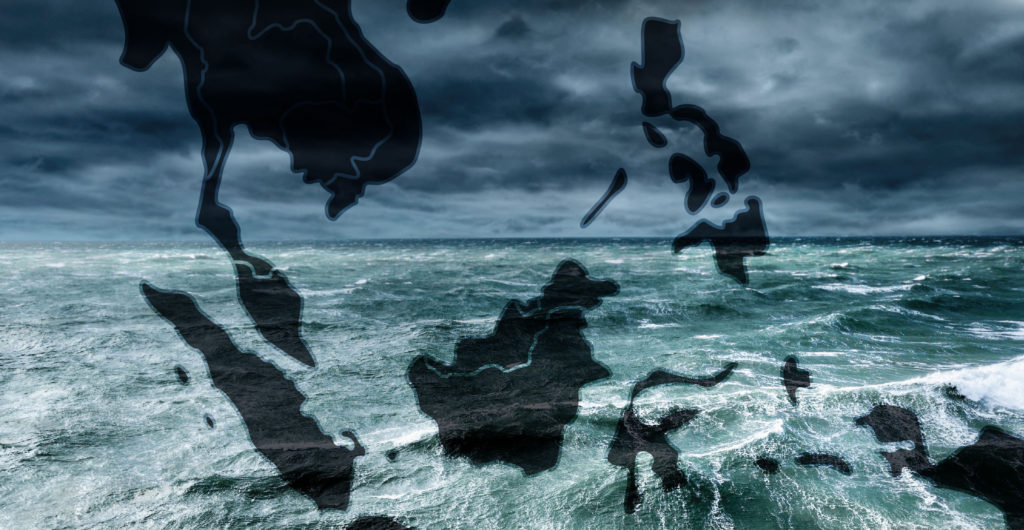Motion on the South China Sea
The South China Sea will shape the course of the 21st century. Brunei, China, Malaysia, the Philippines, Taiwan, and Vietnam have each claimed part of the resource-rich region, and have drawn upon centuries of history to justify their claims. These overlapping claims have created friction between these countries, and the ongoing competition to control the South China Sea has erupted in armed clashes between military groups, coast guard fleets, and fishing vessels in the past.
The South China Sea disputes have intensified in recent years, as the claimants have stepped up efforts to assert control of the region, including building and militarizing artificial islands. China in particular has been notably aggressive in this regard. These actions will have far-reaching impacts. The South China Sea is a critical region for the global economy. Over $5 trillion USD in trade passes through the region each year, on trade routes that connect Asian markets to the world.
As the disputes escalate, the international community must support international law and promote peace in the region. Through a motion introduced by Senator Ngo on May 17, 2016, and adopted on April 24, 2018, the Senate officially stated its concern on China’s escalating and hostile behaviour in the South China Sea, and urged the Government of Canada to take a principled position on one of the biggest geopolitical conflicts by taking a leading role encouraging all parties to:
- recognize and uphold the rights of freedom of navigation and overflight as enshrined in customary international law and in the United Nations Convention on the Law of the Sea;
- cease all activities that would complicate or escalate the disputes, such as the construction of artificial islands, land reclamation, and further militarization of the region;
- abide by all previous multilateral efforts to resolve the disputes and commit to the successful implementation of a binding Code of Conduct in the South China Sea;
- commit to finding a peaceful and diplomatic solution to the disputes in line with the provisions of the UN Convention on the Law of the Sea and respect the settlements reached through international arbitration; and
- strengthen efforts to significantly reduce the environmental impacts of the disputes upon the fragile ecosystem of the South China Sea;
In addition, the motion urges the Government of Canada to support its regional partners and allies and to take additional steps necessary to de-escalate tensions and restore the peace and stability of the region.
Motion to Urge the Government to Take the Steps Necessary to De-escalate Tensions and Restore Peace and Stability in the South China Sea
Click here to read Senator Ngo’s speech introducing the motion on May 17, 2016. Click here to listen to the speech, or click here to listen to the speech with simultaneous English translation.
Inquiry – South China Sea
Click here to read Senator Ngo’s speech on a related inquiry calling the attention of the Senate to China’s hostile behaviour in the South China Sea disputes on March 8, 2016. Click here to listen to the speech, or click here to listen to the speech with simultaneous English translation.
Position Paper
This report, released by Senator Ngo’s office, aims to provide information on the South China Sea disputes. Several aspects of the disputes are addressed, including the existing international law that governs maritime claim disputes, the international reaction to the South China Sea disputes, their impacts on the environment and the global economy, and Canada’s current policy on the disputes. An overview of each South China Sea country’s position and a detailed timeline of the disputes is included.
Click on the cover to view and download an English version of the position paper on the Disputes in the South China Sea.
Additional information
- April 24, 2018 – Statement on the Adoption of the South China Sea Motion



